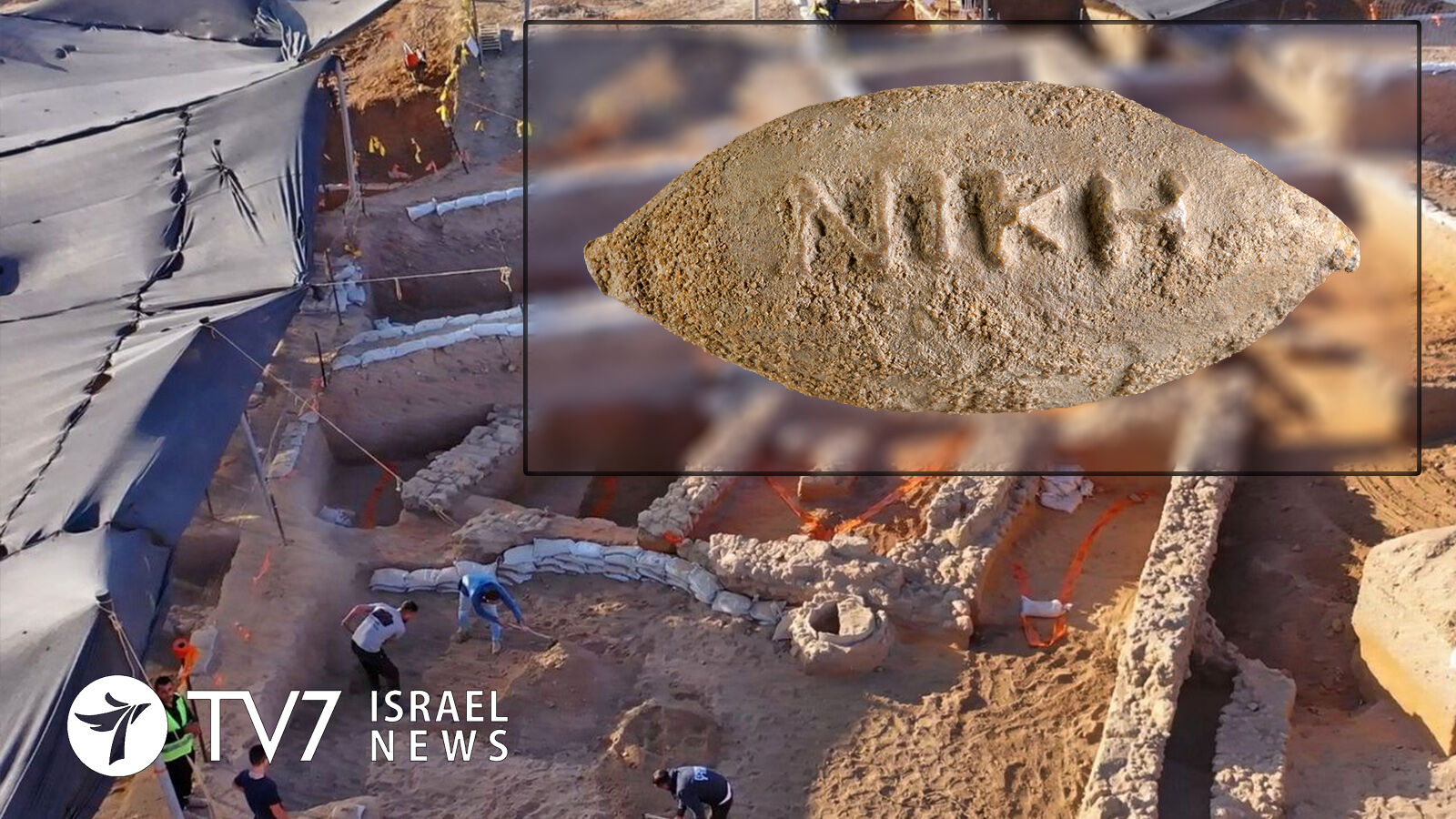The artifact dates back to the Hellenistic period and bears an in Greek intended to ensure victory in battle.
By Erin Viner
The 2,200-year-old bullet was unearthed by the Israel Antiquities Authority (IAA) in the central city of Yavne during archeological excavations as part of the development of the city at the initiative of the Israel Land Authority (ILA).
Yavne, a Canaanite city founded in 2000 BCE, is about 30 kilometers (18 miles) south of Tel Aviv. Judaism flourished in the city after the destruction of the Second Temple in Jerusalem in the year 70. Many English versions of the Bible refer to Yavne as “Jabneh,” while it was called “Jamnia” or “Ibelin” during the Greco-Roman period.
The 4.4 cm bullet is made of lead and was intended for use in early slings. These types of bullets can first be traced back to the 5th century BC, although very few of those found in Israel were inscribed.
In the 2nd Century BC, Yavne was a pagan ally of the Seleucid-Greek rulers of the Holy Land, and the target of attacks by the Hasmonean armies. The Hasmoneans sought, to subjugate the other nations and create a homogeneous and ‘pure state’ from a religious-ritualistic point of view. The tiny lead sling bullets, symbolizing an expected imminent victory, serve as “tangible evidence of a fierce battle that took place in Yavne at that time,” said an IAA statement.
“One can only imagine what that warrior who held the sling bullet 2,200 years ago thought and felt, as he held on to the hope of divine salvation,” mused IAA Director Eli Escusido.
The engraving on the bullet discovered in Israel was deciphered by Professor Yulia Ustinova from Ben Gurion University of the Negev as reading “Victory of Heracles (known in Roman mythology as Hercules) and Hauronas,” which she said was intended to imbue magical energy and unify warriors by raising their spirits, while simultaneously used as a form of psychological warfare aimed at terrorizing enemies. “The announcement of the future victory of Heracles and Hauron was not a call addressed to the deity, but a threat directed towards the adversaries,” she added.
Prof. Ustinova said that discovery is “the first archaeological evidence of the two guardians of Yavne, discovered inside Yavne itself. Until today, the pair was only known from an inscription on the Greek island of Delos.”
Israel’s ongoing excavation in the city is one of the largest ever conducted by the IAA, said Director Escusido, saying that it has so far “yielded fascinating discoveries that testify to a rich and varied history of 7,000 years, and we eagerly await future findings.”
